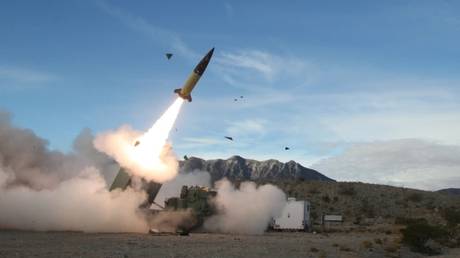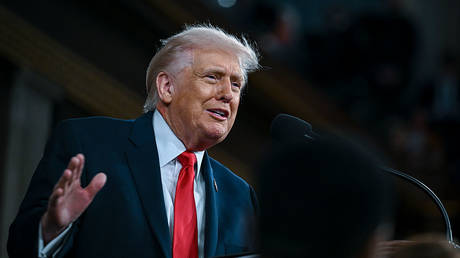
The White House could make an about-face on the missiles after months of hesitation
The United States is preparing to approve shipments of longer-range missiles equipped with cluster munitions for Ukraine, Reuters reported. Washington has long refused Kiev’s demands for such weapons, citing concerns they could be used for strikes deep inside Russia.
The White House is “close” to authorizing the transfer of either Army Tactical Missile Systems (ATACMS) or Guided Multiple Launch Rocket System (GMLRS) missiles, or both, four unnamed US officials told the outlet on Monday.
It is unclear when a final decision will be made, but the sources said the missiles could be included in the next weapons shipment to Ukraine as soon as this week.
The former weapon has a range of some 190 miles (306 km) – the longest of any US system supplied to Kiev to date – while the GMLRS can strike targets 45 miles (72 km) away. Both can be equipped with cluster bombs, which Washington has also provided in past arms packages.
Ukrainian officials have repeatedly demanded longer-range missiles throughout the conflict with Moscow, but so far those requests have been rebuffed, as the US has been reluctant to facilitate strikes far inside Russian territory, such as in Crimea.
Though US National Security Advisor Jake Sullivan previously suggested that supplying the ATACMS could lead “towards a third world war,” saying the president is simply “not prepared to provide” that capability, the administration appears to have reversed course in the months since.
The White House had also cited concerns that the Pentagon had too few ATACMS to spare, but officials recently told ABC News that a surplus of the missiles was found in US inventories, and that there were now “more… than originally assessed.”
The arms shipment, if authorized, would be pulled from existing US stockpiles under the Presidential Drawdown Authority, the four officials told Reuters. Since February 2022, the Biden administration has approved nearly $44 billion in weapons for Kiev, in addition to billions more under the separate Ukraine Security Assistance Initiative, which directs government funds to private arms contractors.
Cluster bombs carry smaller explosive submunitions, typically used against personnel and light vehicles. However, due to their tendency to leave behind undetonated ‘duds’ – which can remain live in former conflict zones for decades – more than 120 nations have agreed to ban the weapon, including most NATO members. Neither the US, Russia or Ukraine have signed the international treaty prohibiting their use, however.
Moscow has repeatedly condemned Western arms deliveries to Kiev, saying they could provoke a major escalation and will only prolong the fighting. Last Friday, Russia’s deputy envoy to the UN, Dmitry Polyansky, warned that “anything” could happen since “nothing is ruled out amid such an intense proxy-standoff between NATO and Russia.”




